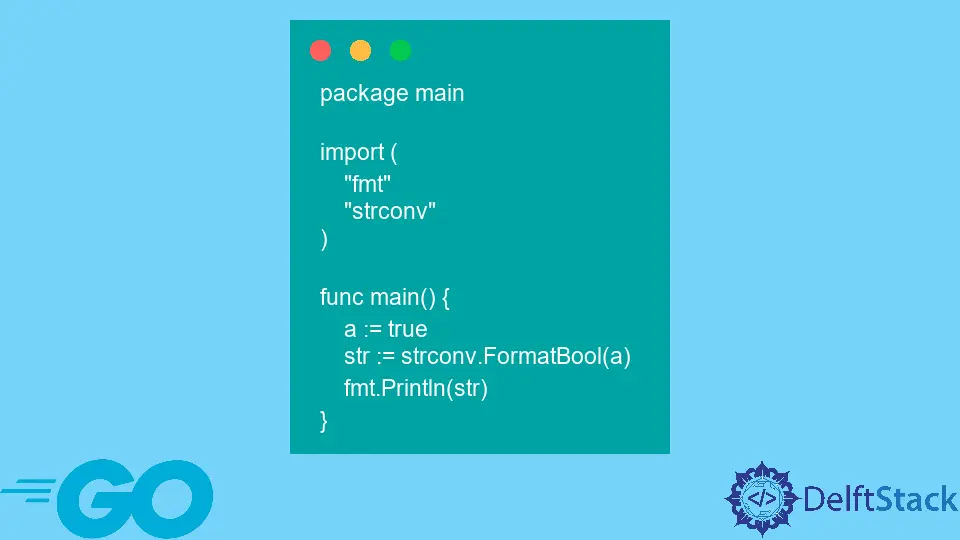在 Go 中将布尔值转换为字符串

本文将介绍 Go 中将布尔值转换为字符串数据类型的方法。
在 Go 中使用 FormatBool 将布尔值转换为字符串
在下面的示例中,FormatBool 根据 a 的值返回 true 或 false。
package main import ( "fmt" "strconv" ) func main() { a := true str := strconv.FormatBool(a) fmt.Println(str) } 输出:
true 在下一个示例中,FormatBool 接收一个布尔值作为参数并将其转换为字符串。
package main import ( "fmt" "strconv" ) func main() { boolVal := true strVal := strconv.FormatBool(boolVal) fmt.Printf("Type of strVal: %T\n", strVal) fmt.Printf("Type of boolVal: %T\n", boolVal) fmt.Println() fmt.Printf("Value of strVal: %v\n", strVal) fmt.Printf("Value of boolVal: %v", boolVal) } 输出:
Type of strVal: string Type of boolVal: bool Value of strVal: true Value of boolVal: true 在 Go 中使用 Sprintf 将布尔值转换为字符串
使用 Sprintf 函数,我们还可以将布尔值转换为字符串。
package main import ( "fmt" ) func main() { boolVal := false strVal := fmt.Sprintf("%v", boolVal) fmt.Printf("Type of strVal: %T\n", strVal) fmt.Printf("Type of boolVal: %T\n", boolVal) fmt.Println() fmt.Printf("Value of strVal: %v\n", strVal) fmt.Printf("Value of boolVal: %v", boolVal) } 输出:
Type of strVal: string Type of boolVal: bool Value of strVal: false Value of boolVal: false Enjoying our tutorials? Subscribe to DelftStack on YouTube to support us in creating more high-quality video guides. Subscribe